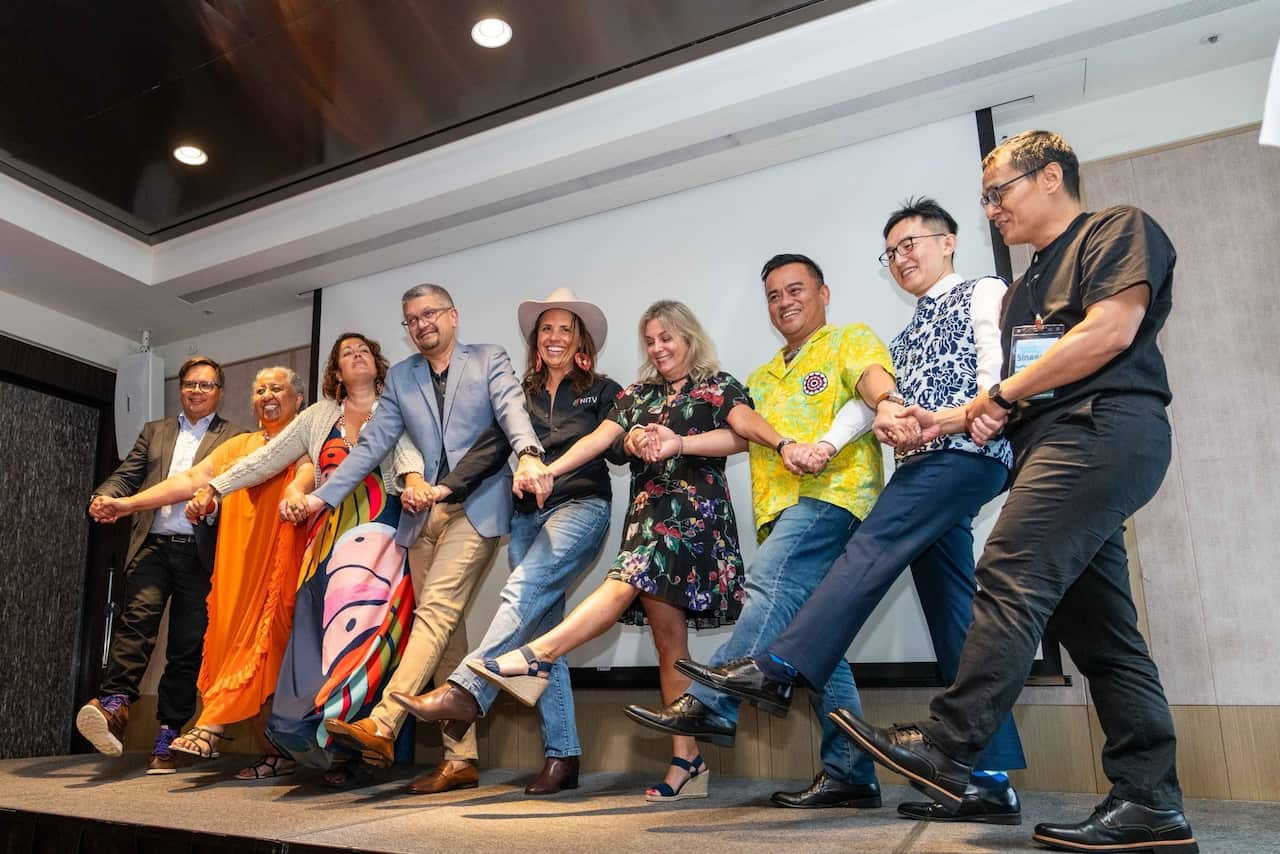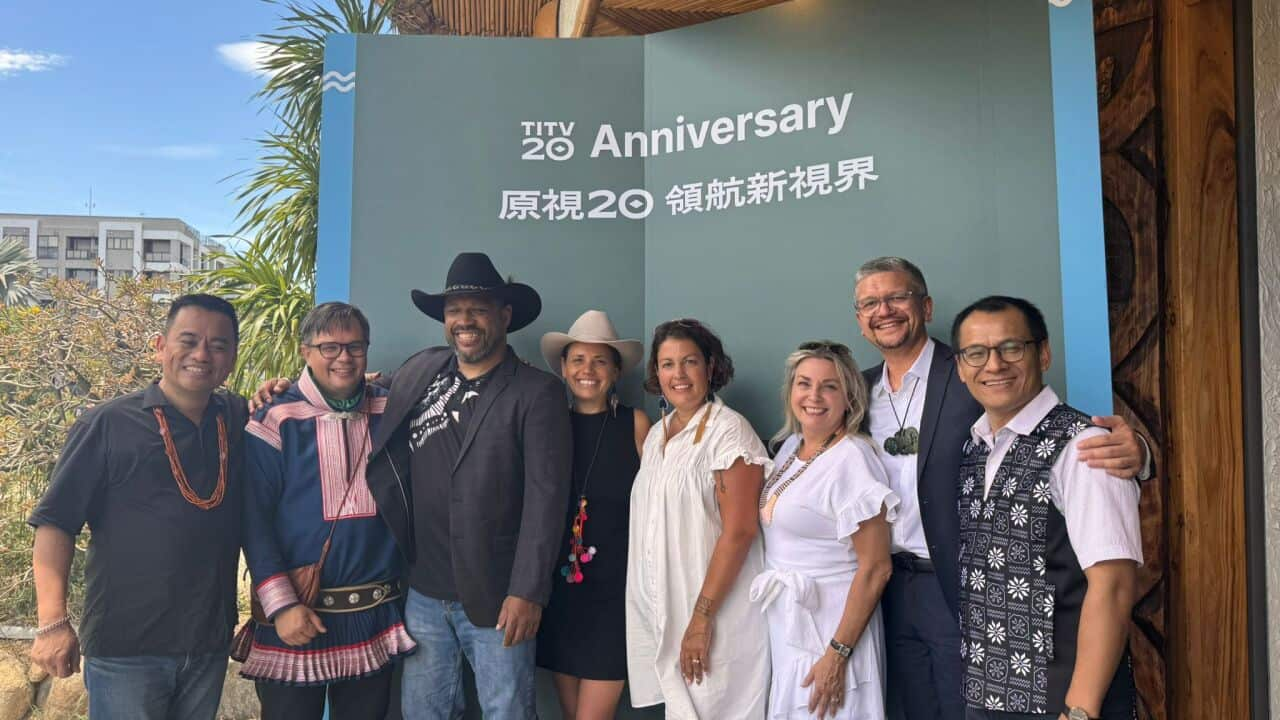Stepping off the plane in Taiwan was a special experience for Māori man Shane Taurima.
Mr Taurima lives in Aotearoa/New Zealand and comes from the Rongomaiwahine and Ngāti Kahungunu tribes, but he feels a shared connection with Taiwan.
"My ancestors many, many years ago - they think it's about five to six thousand years ago - came through Taiwan," he told NITV.
"They actually landed here and then continued the journey all the way to get to Aotearoa/New Zealand."
Mr Taurima is also the CEO of Indigenous broadcaster Whakaata Māori and the chairman of the World Indigenous Broadcasters Network (WIBN), the latter of which recently held its annual conference in Taipei.
The event was hosted by Taiwan Indigenous Television (TITV) - a broadcaster representing Taiwan's 16 recognised Indigenous tribes.
Mr Taurima believes Māori people and the Indigenous peoples of Taiwan have a lot in common, thanks to their shared history.
"When you think about our language there’s so many commonalities ... between Taiwanese Indigenous languages as well as Māori," he said.
"Even the culture is very similar, in terms of singing and performing arts and wanting to have fun, those are real traits of Taiwan Indigenous peoples and you see those similarities with Māori in Aeotearoa too."
Alang Galavangang, a member of the Bunun tribe and the CEO of TITV agreed.
"There’s a sense that we’re one family," he told NITV.
"We understand each other’s history, and we know we’ll move forward together."
We share similar experiences, we tell the same stories, and we want to speak of a shared future to the world."Alang Galavangang, TITV CEO
"In the same way, everyone in the WIBN family knows that the challenges Indigenous peoples face — and the futures we’re heading toward — are similar."
Indigenous storytellers take centre stage
Representatives from all around the globe gathered in Taipei for the conference, including NITV from Australia, the Aboriginal Peoples Television Network (APTN) from Canada, and NRK Sápmi from Norway.
For Johan Ailo Kalstead, a Sami man and the director of NRK Sápmi, the conference was well worth the trip.
"I see that many have solutions that we haven't come up with, and we also have thoughts and ideas we can share back, so I think its very valuable to come together and have these kinds of conversations," he said.

Mr Kalstead said language preservation and the passing on of culture to young Sami people are issues his organisation is working to address.
"Sami culture and language has been under threat for many decades due to the same assimilation processes you see in other places across the world," he said.
"What we struggle with is to teach our kids the language and their culture but also take it into a new modern age and meet the needs of new generations ... we need to learn how to cope with the new situation, new technology, and new expectations."
Stream free On Demand

The Sámi Voice
episode • Dateline • News And Current Affairs • 27m
episode • Dateline • News And Current Affairs • 27m
For APTN's CEO Monica Ille, a member of the Abenaki First Nation of Odanak, meeting other Indigenous storytellers is always an emotional experience.
"When we meet together as a family reuniting, we share our stories, we share our songs, we share our dances and we connect at a very human level," she said.
Ms Ille said the work of Indigenous storytellers was crucial to ensuring First Nations peoples controlled narratives about their own communities.
"First Nations people, Indigenous people, Aboriginal people from across the world, we have a very traumatic experience - so by telling these stories, it's kind of freeing us because we're telling the stories how we want to tell them, and in the way we want to tell them," she said.
A coming of age
WIBN's 2025 conference in Taipei coincided with the TITV's 20th anniversary on air, with delegates travelling to Taoyuan City to participate in a blessing of the organisation's new broadcast studios.
For Mr Galavangang the conference and anniversary represent a coming of age for the Indigenous broadcaster.
"In our traditions, you might be considered an adult at 15 or 18. By 20, you’re definitely grown — and you should carry yourself like an adult," he said.
"We hope to carry forward the efforts of those who came before us — our colleagues and our people."

